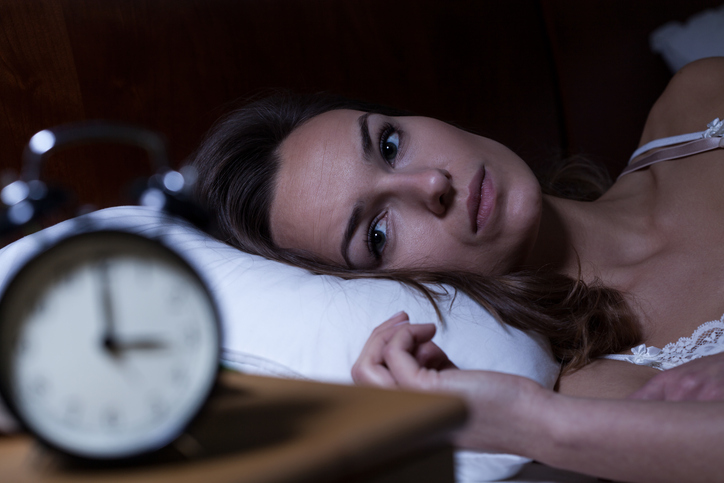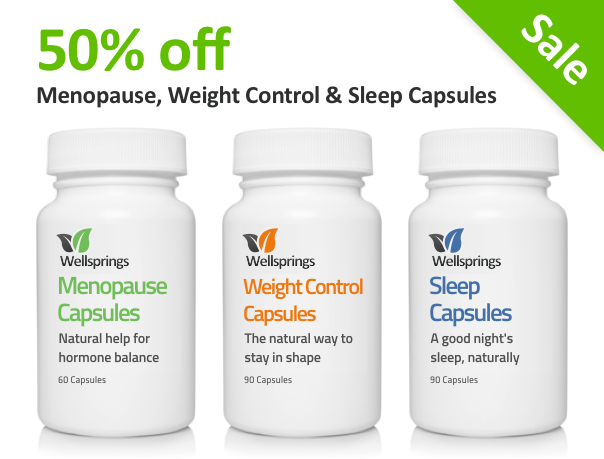How to Help Yourself After a Bad Night’s Sleep
Do you struggle to get off to sleep, or is the problem more that you keep waking up in the night? Here are some simple ways to improve your sleep.

We all get them occasionally, and unfortunately the hormonal changes at Menopause can really affect your sleep.
If it’s not the hot flushes or night sweats, it’s the getting up to pee or higher levels of anxiety than usual that can all cause you to have a bad night.
There are definitely things you can do to help, bioidentical progesterone we know helps you to relax and sleep better but these lifestyle changes which you may already know about, but didn’t realise affected your sleep, can make a difference too.
Basically there are two clear categories: things to do and things you definitely don’t want to do, so here are some tips to make things a little easier and make sure you sleep better tonight.
DON’T hit the snooze button
That extra 10 minutes is just the thing to give you a bit of extra energy, right? Not really. You need up to an hour of extra sleep before it helps.
Otherwise, you’re just creating stress for yourself by shortening your morning prep time, and it can create anxiety if you don’t doze off but keep checking the clock.
DON’T sleep in
You decide to take the morning off. You think you can make up that sleep you’ve lost, but it’s a bad idea.
You set your body’s “internal clock” when you go to bed and get up at the same time each day. It’s best to stick to that routine, even if you didn’t sleep well, as it will help to get your cycle back on track.
DON’T drink alcohol
It can make you sleepy but after a few hours, as your body processes the alcohol, it wakes you up.
Plus the quality of the sleep you do get after a few drinks may not be as good.
DON’T smoke
You know that smoking is bad for your health, but if you’re already a smoker and you’re trying for a good night’s sleep, try not to do it too close to bedtime.
Like caffeine, tobacco is a stimulant that can keep you from getting to sleep.
DON’T surf the internet
Too much of any light after the sun goes down can mess up your sleep, but the “blue light” given off by your smartphone, computer, or tablet is especially bad.
Calm yourself before bed and try to keep your bedroom dark and quiet, too.
DON’T make big decisions
Without proper sleep, your judgment is faulty. Overworked brain cells can’t put thoughts together or remember basic information.
Even your basic understanding of an event as it happens may be different – and menopausal brain fog doesn’t help either. So wait before that decision as things may be clearer after a good night’s rest.
*************************************************************************************
Well that is enough of what you must not do, or at least do your best to avoid, so here are some positive things can make a real difference to your sleep.
DO get some sun
It helps your body set its clock and can also help counter sleeplessness by helping your mood and brain. So if you want to get more sleep tonight than last night, wake up and greet the light of the day.
It helps to get out in the middle of the day too, so maybe take a little stroll around lunchtime as even winter sun will be helpful.
DO have some caffeine
If you skip your regular morning coffee, you may get even groggier. It could also make you irritable and give you a headache. So have some as a little extra might even help you stay alert.
BUT the key word here is ‘some’ because caffeine sticks around in your system for several hours. So don’t overdo it and definitely don’t have caffeine in any form close to bedtime and that means coffee, tea, colas and chocolate.
DO exercise at the right time
It can improve your sleep and help you fall asleep more quickly. But don’t do it too close to bedtime because it stimulates your body to make something called cortisol and that’s the hormone that makes you more alert.
That’s good when you’re trying to wake up for work or an appointment, but it’s not so good when you’re trying to get back to sleep.
If you must exercise in the evening, try to finish at least 3 hours before you go to bed.
DO nap the right amount
The has been much debate about whether having a nap is good for you or bad for you, and unfortunately the answer is yes and no as it depends on the length.
A 20-minute nap will sharpen your attention and motor skills. A 90-minute one may improve your creative thinking. But naps between 20 and 90 minutes (or your own personal sweet spot) can leave you more groggy than when you started. Best so set an alarm to stay in control of it.
Keep in mind that a nap of any length, especially later in the day, can make it harder to get to sleep in the evening. That can lead to a vicious cycle of sleeplessness and a messed-up sleep routine.
DO eat light and early
If you don’t want to repeat last night’s lack of sleep, a rich or heavy meal at 11 p.m. probably won’t help. Eat a lighter dinner several hours before bed.
If you’re hungry later, snack lightly on foods that don’t disturb your sleep. Toast or yoghurt are often easy on the system.
DO hydrate
Let us be honest here, this is a tricky thing to get right at Menopause. You want to drink enough fluids so that you don’t wake up thirsty in the middle of the night, but not so much that you wake up because you need to pee.
Also try to avoid alcohol and caffeine close to bedtime.
DO chill out before bedtime
Start to relax as bedtime approaches: no bright lights, arguments, scary TV or books as any of those can make it hard to fall asleep.
Try to keep your bedroom dark and quiet and not too hot. Cooler is better so aim for around 60-67 F as your ideal.
Helpful information:
Sometimes sleeplessness is natural. A big event in your life – good or bad – may cause it. If this happens now and then, it may be nothing to worry about. If sleep problems start to change your general mood and work habits, and stick around for a month or more, then time to take action.
Talk to your doctor, and do check your progesterone levels as that is the hormone that helps you relax for a good night’s sleep, or investigate Wellsprings sleep Capsules to support a better sleep pattern.
Your diet really makes a difference too, so you may also find this article helpful:
https://anna.blog.wellsprings-health.com/best-5-foods-to-aid-sleep/


















